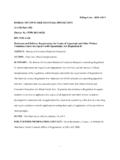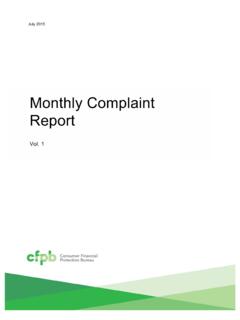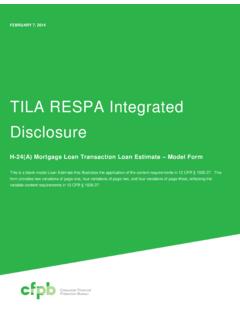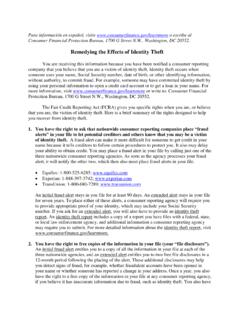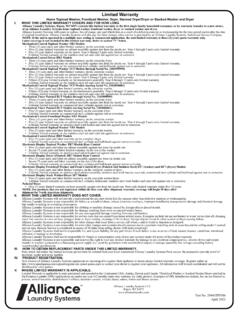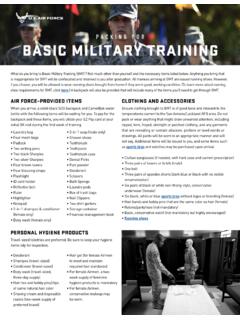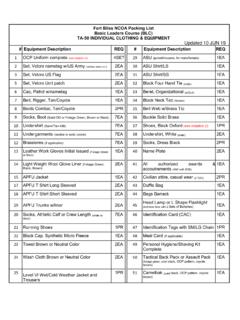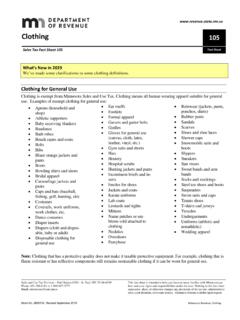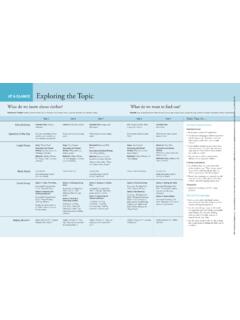Transcription of Spending tracker tool - Consumer Financial Protection …
1 1 GETTING STARTEDS pending trackerBefore deciding on changes to your Spending , it s a good idea to understand how you use your money track of what you earn and everything you spend money on for a month, rather than just a week or two, lets you see all of your income and expenses in one place. Many people who track their Spending for a month discover that they're Spending money in small ways that add up and sometimes don t match their priorities. Once they track their Spending , many people can find money to save for emergencies, unexpected expenses, and goals. Others are able to balance their to do Get a small container or envelope. Every time you spend money, get a receipt and put it into the case or envelope. If the receipt doesn t list what you purchased, take a few seconds and write it on the receipt. If you don t get a receipt, write down the amount and what you purchased on a piece of paper and add it to the stack. If you use a mobile device to keep track of your Spending , make sure you read the Protecting your information on digital money apps tips in Module 4.
2 Analyze your Spending . Go through your receipts and enter the total you spent in each category for each week. Add the weekly amounts per category. Write these down in the Category totals column. Once you have these totals, add them together to get your total Spending for the month. If tracking your Spending for a whole month seems too difficult, try it for just one or two weeks. Notice trends. Circle items that are the same every month (like rent, car, or cell phone payments). These are often your needs and obligations. This will make creating your budget easier. Identify any areas you can eliminate or cut back on these will generally be wants. A step furtherOnce you've tracked your Spending , be sure to add it into your budget or cash flow budget. Learn more about cash flow budgets in Module 5: Getting through the Month. 2 CATEGORIES USED IN THE Spending TRACKERCell phoneAny costs related to having and using your cell phoneDebt paymentCredit card payments, payday loan payments, pawn loan payments, auto title loan payments, other loan paymentsEating outAny meals or beverages purchased outside of the homeEducation + childcareChildcare costs, school supplies, school materials fees, field trips, other activity feesEntertainment + personal careMovies or concerts, sports equipment/fees, sporting events, lottery tickets, alcohol, books/CDs, subscriptions, streaming services, haircuts, hygiene items, dry cleaningGroceries + other suppliesFood and beverages brought into the home, household supplies (diapers, paper towels, etc.)
3 Health expensesCo-payments, medication, eye care, dental care, health insurance premiumsHelping othersDonations to religious organizations or other charities, giftsHousing + utilitiesRent, mortgage, insurance, property taxes, electricity, gas, water and sewage, landline, television, Internet servicePetsFood, vet bills, and other costs associated with caring for your petsTr an s por tGas, car payment, insurance, repairs, transit fares, ride services, cabs Other Court-ordered expenses (child support, restitution) Household items (things for your home like cleaning supplies, kitchen appliances, furniture, other equipment) Savings (saving for emergencies, goals, back-to-school expenses, holiday purchases, children s education, retirement) Tools or other job-related expenses (equipment, special clothing , job-related books, machinery, working animals or livestock, union dues) Ask a questionNeed help getting abank or debt collectorto respondNeed help help with benefitsNeed help withhealth care billsNeed help payingutility billsNeed help dealing withdebt and foreclosureNeed help findinga lawyerBe sureTake a breathResolvePrimary jobGovernmentprogramDisability insuranceFinancial supportChildcare &educationDonations & giftsThings I cancharge I I I I don t payfor I don t pay forhousing and I don t pay forjob-related I don t payfor I can I I can I can &suppliesEating outEntertainmentPersonal careTransportPetsHealthcareDebt paymentHousing & help findinga jobFinancial support 3 A Spending tracker can help you analyze and change your Spending Get an envelope to collect your Use the table to track your Spending in the categories below.
4 Don t forget about bills you share with At the end of the month, add up each for the month of:WEEK 1 WEEK 2 WEEK 3 WEEK 4 WEEK 5C ATEGORY TOTAL SCell phoneDebt paymentEating outEducation + childcareEntertainment + personal careGroceries + other suppliesHealth expensesHelping others Housing + utilitiesPetsTransportOtherTotal Spending this month: Ask a questionNeed help getting abank or debt collectorto respondNeed help help with benefitsNeed help withhealth care billsNeed help payingutility billsNeed help dealing withdebt and foreclosureNeed help findinga lawyerBe sureTake a breathResolvePrimary jobGovernmentprogramDisability insuranceFinancial supportChildcare &educationDonations & giftsThings I cancharge I I I I don t payfor I don t pay forhousing and I don t pay forjob-related I don t payfor I can I I can I can &suppliesEating outEntertainmentPersonal careTransportPetsHealthcareDebt paymentHousing & help findinga jobFinancial support 4 This tool is included in the Bureau of Consumer Financial Protection s Your Money, Your Goals: A Financial empowerment toolkit.
5 The Bureau has prepared this material as a resource for the public. This material is provided for educational and information purposes only. It is not a replacement for the guidance or advice of an accountant, certified Financial advisor, or otherwise qualified professional. The Bureau is not responsible for the advice or actions of the individuals or entities from which you received the Bureau educational materials. The Bureau s educational efforts are limited to the materials that the Bureau has tool may ask you to provide sensitive information. The Bureau does not collect this information and is not responsible for how your information may be used if you provide it to others. The Bureau recommends that you do not include names, account numbers, or other sensitive information and that users follow their organization s policies regarding personal information.


